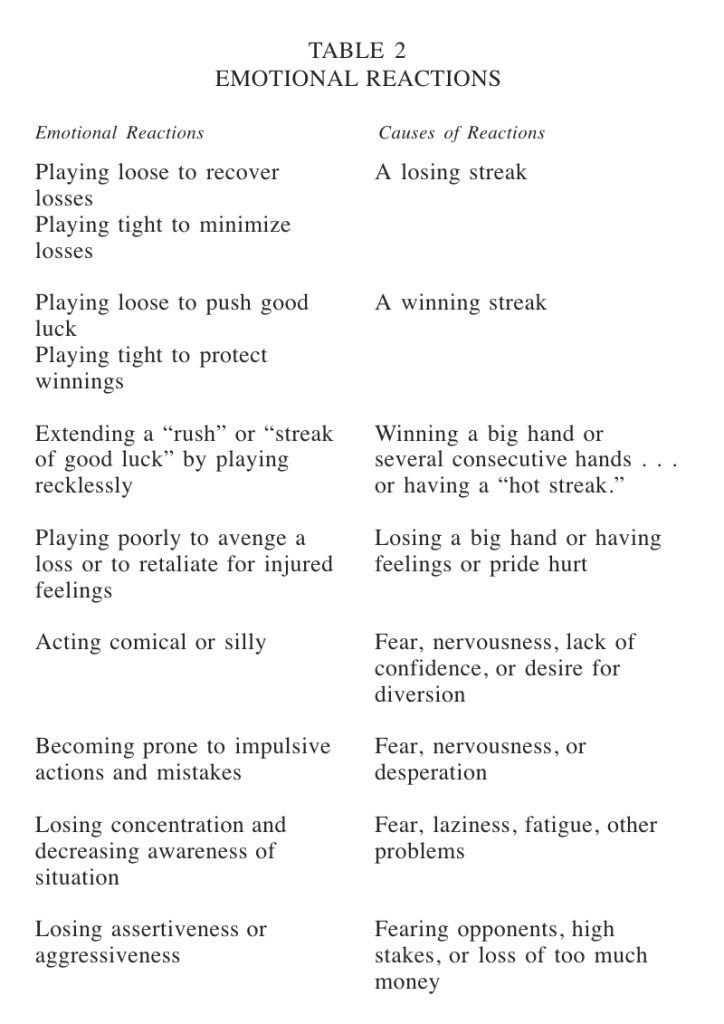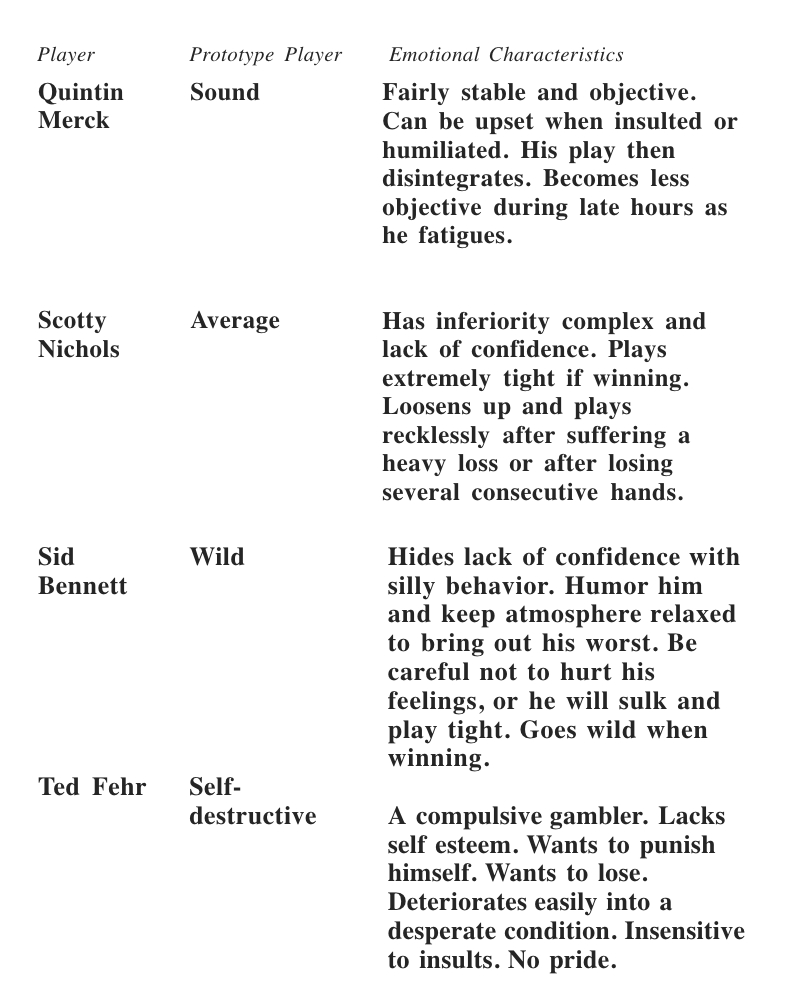Emotions
Money affects emotions, and emotions control most players. Poker involves the winning and losing of money. Common emotions of anger, excitement, greed, masochism, sadism, and self-pity often take control of players during the action. Most players fail to recognize or are unable to suppress those emotional influences that decrease their objectivity and poker ability. The good player recognizes his own emotions and prevents them from influencing his actions…. He avoids acting on his whims and feelings.
Players respond emotionally to various experiences during the game. The good player uses those emotional reactions to his financial advantage. Some typical reactions and their causes are listed in Table 2.

Recognition and control of one’s own emotions are difficult and require thinking effort. That is one reason why good poker players are rare.
The good player directs his actions to produce desirable emotions (e.g., pleasure and self-esteem); the poor player lets his emotions produce undesirable actions (e.g., poor concentration and carelessness).
Poker is a unique medium for studying people. Where else can one stare at and intensely observe another person for hours every week?
Poker offers opportunities to study people, often in highly emotional situations. Such opportunities that are probably better than those most psychoanalysts get to study their patients. The observant, good player will soon understand his opponents better than their own families do.
Poker players are often fatigued and under emotional stresses that expose their characters. On another page in John’s notebook, he summarizes the emotional characteristics of his opponents as shown on the chart below:
